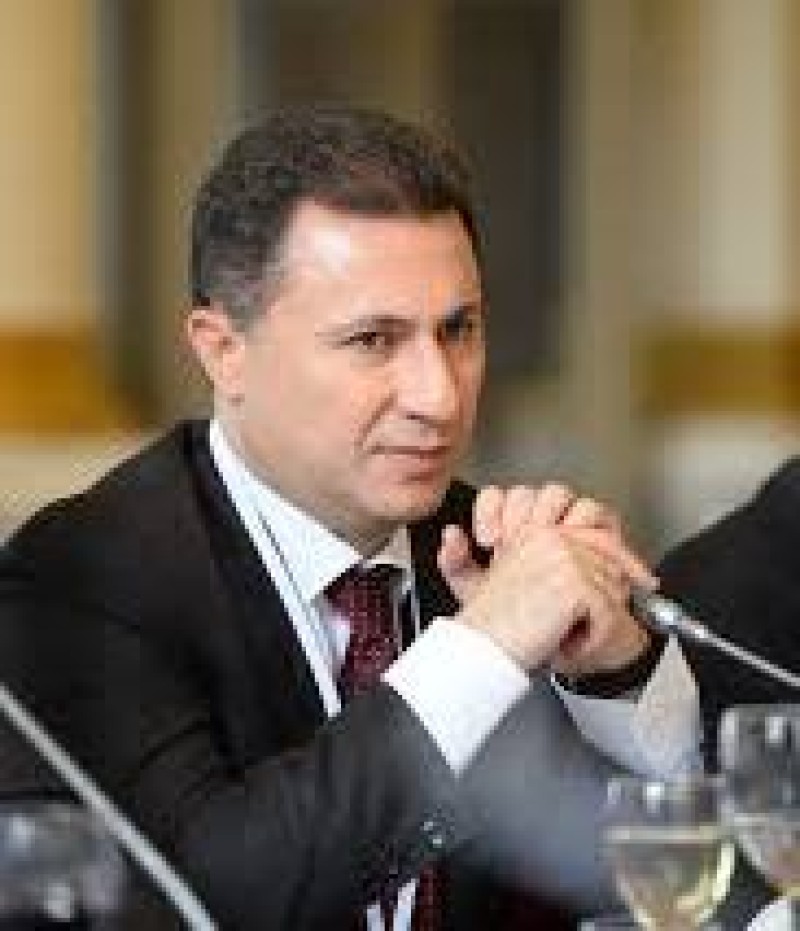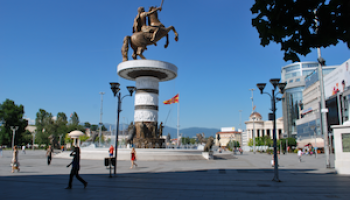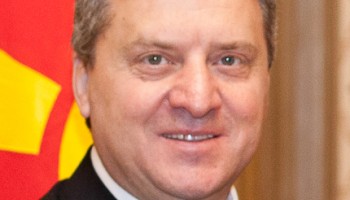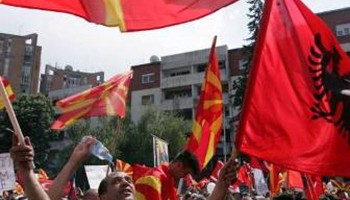The announcement fulfills the principal demand that anti-government protesters requested during mass protests in May 2015.
The reign of Gruevski's right-wing government (VMRO-DPMNE) was shaken when, in February 2015, the opposition leader from the Social Democrats (SDSM) Zoran Zaev started to publish audio recordings he said were the results of illegal wiretaps of about 20,000 citizens that Gruevski ordered – including various political actors and even his own cabinet.
The extent of the wiretapping shocked the nation - his government has allegedly illegally wiretapped every 100th citizen.
Ironically, Gruevski was undone by such recordings. Dubbed "Zaev's bombs", the released tapes contain what appears to be the voices of Gruevski and some of his closest allies discussing various criminal activities they are allegedly involved in – massive corruption, misappropriation, a failed murder cover-up, vote-buying and other serious offenses.
Shortly before Zaev started to publish the recordings, he was accused by Gruevski of mounting a coup with the help of unnamed foreign secret services, as well as blackmailing him into announcing elections using illegally obtained surveillance material. Gruevski implemented a police action dubbed "Putsch" that arrested several people accused of helping Zaev's alleged cause.
Authorities accused the former head of Macedonia's secret service, Zoran Verusevski, of providing Zaev with the material and helping him to mount the coup, and Verusevski was one of the people detained as part of "Putsch".
Macedonia was already the scene of frequent protests by various social groups that expressed disagreement with new education and labor laws. Zaev's recordings added fuel to the flame, and mass anti-government protests erupted in Skopje in the beginning of May.
Gruevski and the ruling VMRO-DPMNE maintained that the recordings were doctored and produced in order to destabilize Macedonia and mount a coup.
Less than two weeks later, on May 17, another massive anti-government protest took place in front of the government building, with protesters calling on Gruevski and several of his cabinet members to resign.
A day later, the VMRO-DPMNE held a support rally in front of the Parliament building in Skopje.
For the next couple of days, the city was the scene of two opposing camps separated by a 10-minute walk from each other – anti-government protesters vowed to sleep in front of the government building in tents until Gruevski resigns, while Gruevski's supporters said they will do the same thing until Zaev resigns as opposition leader.
As tensions between the two groups kept increasing, the European Union decided to step in.
Following several EU-brokered talks last summer, the major political parties in Macedonia agreed to hold new elections on April 24, and that Gruevski must resign at least 100 days before those elections – the first half of January at latest.
But the resignation of Gruevski and several of his cabinet members is not the only demand the opposition expressed. They have also called for a thorough investigation into the alleged revelations contained in Zaev's tapes, and for all those guilty of crimes to be brought to justice, including possibly Gruevski.
An independent Special Prosecutor's office was formed that would have full authority to investigate the wiretapping allegations. On September 15, Katica Janeva was named to head of the new institution.
In December, Janeva requested two defendants in the Putsch case, Zorav Verusevski and Gjorgji Lazarevski, to be freed from detention. The request was heavily criticized by the VMRO-DPMNE, who accused Janeva of supporting the SDSM.
Nevertheless, on December 29, Verusevski and Lazarevski were freed from detention, but may not leave the country and their passports are suspended.
On Sunday, Gruevski announced he will resign by January 15 – the deadline for his political party, the VMRO-DPMNE, to nominate an interim Prime Minister to take over the government until the elections.
The nominee is yet to be agreed upon.






